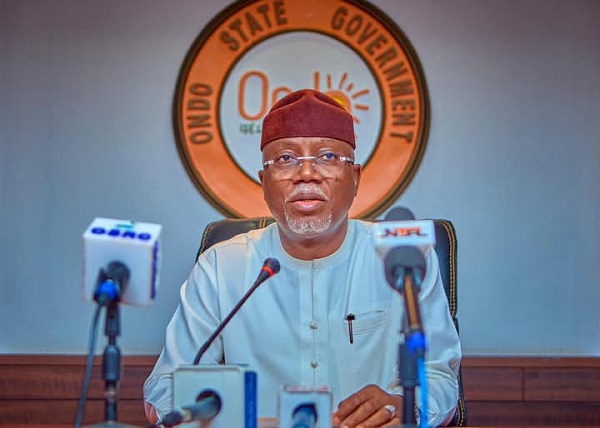The Ondo State Government has approved the transfer of the University of Medical Sciences Teaching Hospital complex in Akure to the Federal University of Technology, Akure, to serve as the institution’s College of Medicine Teaching Hospital.
The state Commissioner for Health, Dr. Banji Ajaka, disclosed this on Friday while briefing journalists on the outcome of the State Executive Council meeting.
Ajaka, explained that the action of the state government on the hospital followed the President Bola Tinubu’s approval for FUTA to establish a college of medicine and a teaching hospital.
According to him, the Akure hospital complex would be ceded to the Federal Government to serve as FUTA’s main medical sciences facility.
“The handover includes the transfer of staff infrastructure, equipment, and liabilities. All employees will be absorbed into FUTA Teaching Hospital under the Federal Government,” Ajaka stated.
He noted that the development was aimed at strengthening the healthcare delivery system in the state while advancing FUTA’s ambition to become a leading centre for medical sciences in Nigeria.
Also speaking, the Commissioner for Agriculture and Forestry, Engr. Leye Akinola, said new measures had been approved by the council to protect farmers from the impact of the European Union Deforestation Regulation, which bans crops cultivated from deforested areas.
He said the government has approved agroforestry practices across selected forests, while ensuring reserved areas remain intact.
Akinola said, “Cocoa, cashew, oil palm, and rubber farmers will be permitted to continue operations under strict mapping and traceability systems.
“By December 30, 2025, any crop that cannot be traced to a mapped farm risks being rejected at the EU market. To safeguard livelihoods, the state will support farm mapping and grant farmers permits to continue operations.”
He added that the council also approved a review of tariffs across agricultural produce and timber value chains, aligning Ondo with other South-West states under the Development Agenda for Western Nigeria Commission framework.
On his part, the Commissioner for Information, Mr. Idowu Ajanaku, clarified that each cabinet member had been directed to nominate a road project in their respective local government areas to impact communities directly.
He stressed that the initiative was not for private or partisan interests but to ensure equitable development across the 18 local government areas of the state.
“These roads are outside the 2025 budgeted projects. They are supplementary interventions to touch communities and enhance connectivity,” Ajanaku said.









